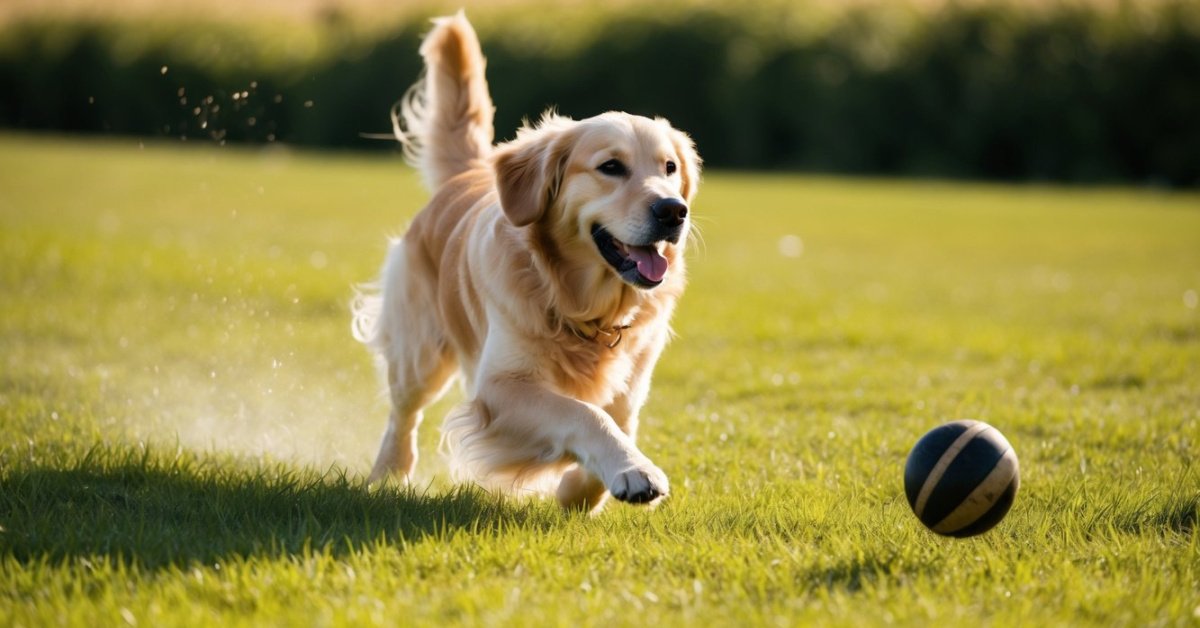Golden Retrievers are more than just friendly companions; they’re also incredible service dogs. With their intelligence and gentle nature, they excel in various roles that make a real difference in people’s lives. Whether it’s providing emotional support or assisting those with physical disabilities, these dogs have a unique ability to connect with their humans.
In this article, I’ll explore the different roles Golden Retrievers can take on as service dogs. From mobility assistance to therapy work, their versatility is truly inspiring. Join me as we dive into the heartwarming world of Golden Retriever service dogs and discover how they transform lives every day.
Overview of Golden Retriever Service Dogs
Golden Retrievers excel as service dogs due to their intelligence, adaptability, and affectionate nature. These traits make them suitable for various roles that enhance the quality of life for individuals with disabilities. Here are some key roles they commonly fulfill:
- Mobility Assistance: Golden Retrievers help individuals with limited mobility by providing support while walking, retrieving items, or even opening doors. Their size and strength enable them to assist effectively.
- Emotional Support: These dogs offer companionship and comfort, helping individuals manage anxiety, depression, and stress. Their gentle demeanor promotes feelings of safety and love.
- Physical Disability Assistance: Golden Retrievers perform specific tasks for those with physical challenges. They can pull wheelchairs, assist with balance, and provide physical support to those in need.
- Therapy Work: In hospitals and nursing homes, Golden Retrievers serve as therapy dogs, providing emotional support to patients. Their calming presence helps lower blood pressure and evoke smiles.
- Alerting Service: They can alert individuals to medical situations, such as low blood sugar in diabetics or seizures in those with epilepsy. Their instincts and training make them invaluable in these scenarios.
Golden Retrievers’ versatile roles showcase their unique ability to impact lives positively, making them among the most sought-after service dog breeds.
Common Service Dog Roles
Golden Retrievers fulfill various service dog roles, showcasing their versatility and ability to support individuals in need. Below are some common roles these remarkable dogs play.
Guide Dogs for the Visually Impaired
Guide dogs facilitate mobility for individuals with visual impairments. Golden Retrievers navigate obstacles, stop at curbs, and lead their handlers safely through environments. They receive extensive training to recognize hazards, follow commands, and ensure their partner’s safety. Their friendly demeanor also helps reduce anxiety in unfamiliar situations.
Therapy Dogs for Mental Health Support
Therapy dogs assist individuals dealing with mental health challenges, such as anxiety and depression. Golden Retrievers provide comfort through their calming presence and affectionate nature. They engage in activities like visiting hospitals, schools, and care facilities, promoting emotional well-being. Their ability to connect with people encourages social interaction, reducing feelings of isolation.
Alert Dogs for Medical Conditions
Alert dogs play a critical role for individuals with specific medical conditions. Golden Retrievers can alert their handlers to impending medical issues, such as seizures or low blood sugar. They utilize their keen senses to detect changes in their partner’s body chemistry or behavior. Their ability to alert helps ensure timely medical interventions, significantly enhancing safety and peace of mind.
Training and Certification Processes
Training and certification of Golden Retrievers as service dogs involves a structured approach that ensures these dogs are well-prepared for their specific roles. This process focuses on essential skills and suitable programs to equip them for various tasks.
Required Skills for Service Dogs
Service dogs, including Golden Retrievers, must exhibit several key skills. These skills include:
- Obedience: Service dogs respond promptly to commands from their handlers, demonstrating strong obedience.
- Socialization: Service dogs interact calmly with people and other animals, ensuring positive experiences in various environments.
- Focus: Service dogs maintain concentration amidst distractions, which is essential for their safety and for effective task execution.
- Task Performance: Service dogs perform specific tasks, like retrieving items, guiding individuals, or providing physical support.
- Calmness: Service dogs display a calm demeanor, especially in stressful situations, to help soothe their handlers.
These skills are crucial for the dog’s ability to perform their roles effectively and safely.
Training Programs and Resources
Various training programs and resources assist in the education of Golden Retrievers as service dogs. These include:
- Professional Training Organizations: Many organizations, such as the International Association of Assistance Dog Partners, offer structured training programs tailored to service dog needs.
- Standardized Certification: Organizations like the Service Dog Academy provide certification pathways that ensure adherence to training standards and regulations.
- Service Dog Training Schools: Some institutions specialize in training dogs for specific services, offering comprehensive curricula focused on practical skills.
- Owner Training Resources: Resources are available for handlers wishing to train their service dogs, including online courses, videos, and books.
Utilizing these resources helps ensure that Golden Retrievers receive the necessary training, allowing them to thrive in their service roles.
Benefits of Golden Retriever Service Dogs
Golden Retriever service dogs offer numerous benefits that significantly enhance the lives of their handlers. Their natural instincts and trained abilities create a positive impact in various areas of daily life.

Impact on Quality of Life
« Mastering Golden Retriever Hunting Training Basics: A Guide for New Hunters
Your Ultimate Guide to Finding Local Golden Retriever Events for Fun and Connection »
Golden Retrievers improve emotional well-being. They provide companionship, reduce loneliness, and promote social interaction. Their friendly demeanor fosters a sense of security, particularly in unfamiliar environments. Many handlers report lower anxiety levels and an increased sense of independence, thanks to their reliable support and calming presence.
Assistance in Daily Activities
Golden Retrievers excel in assisting with everyday tasks. They can pull wheelchairs for individuals with mobility limitations, retrieve dropped items, and provide balance to those who need it. These dogs help remind their handlers to take medication, ensuring consistent health management. They also assist with tasks such as opening doors and fetching items, making daily life simpler and more manageable for their partners.
Challenges and Considerations
Service dogs, like Golden Retrievers, face various challenges and considerations. Understanding these factors ensures effective use and proper management of their roles.
Limitations of Service Dogs
Service dogs aren’t equipped to handle every situation. They may struggle in crowded or chaotic environments where their focus could wane. Some dogs may have difficulty performing specific tasks due to health or age restrictions. Additionally, not all individuals can afford the time or resources necessary for proper training and care, which can hinder a service dog’s effectiveness. A dog’s training might also vary based on the handler’s unique needs, affecting the type of assistance provided.
Legal Rights and Responsibilities
Handlers of service dogs must understand their legal rights and responsibilities. Under the Americans with Disabilities Act (ADA), service dogs enjoy access to public spaces, ensuring that they can accompany their handlers in most facilities. However, handlers must maintain control over their dogs, preventing disruptive behavior or aggression. Registration isn’t required, but proper identification of service dogs can streamline interactions with the public. Handlers should also be responsible for their dog’s care, health, and well-being, ensuring they remain fit for duty.
Conclusion
Golden Retrievers truly shine as service dogs with their incredible abilities and loving nature. I’ve seen firsthand how they change lives by providing essential support and companionship. Their versatility in roles like mobility assistance and therapy work highlights just how valuable they are to those in need.
Having one of these amazing dogs by your side can make a world of difference. Whether it’s helping someone navigate daily challenges or simply being a comforting presence, Golden Retrievers embody unwavering loyalty and dedication. Their impact goes beyond tasks; they bring joy and hope to countless individuals. It’s heartwarming to know that these furry friends are out there making life a little brighter for so many.













![PetDroid Interactive Dog Toys Dog Ball, [Newly Upgraded] Durable Motion](https://m.media-amazon.com/images/I/41P-nlk1L0L._SL500_.jpg)



